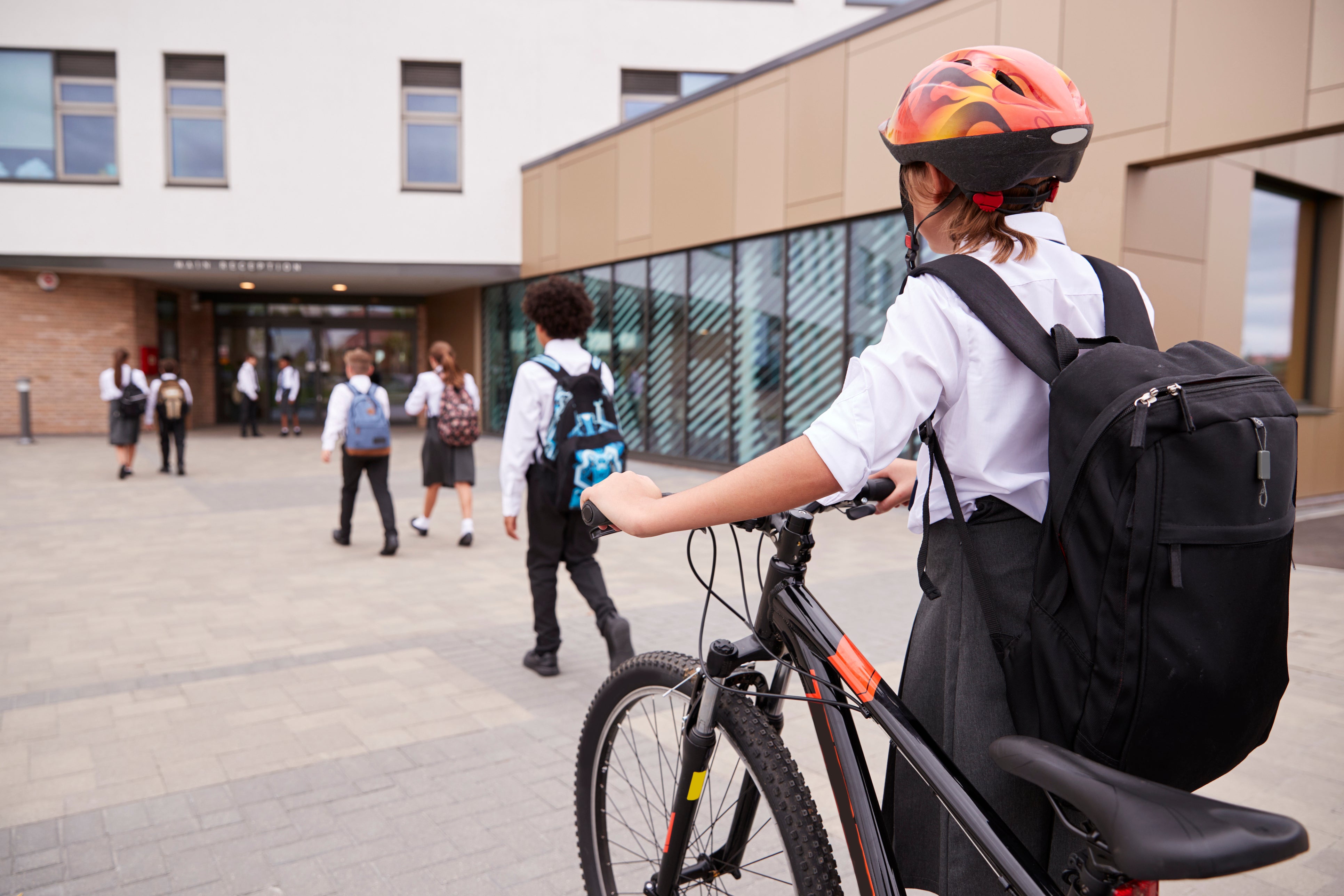How to support children going back to school
For parenting expert Suzie Hayman, the key is open communication and sticking to a routine.

Your support helps us to tell the story
From reproductive rights to climate change to Big Tech, The Independent is on the ground when the story is developing. Whether it's investigating the financials of Elon Musk's pro-Trump PAC or producing our latest documentary, 'The A Word', which shines a light on the American women fighting for reproductive rights, we know how important it is to parse out the facts from the messaging.
At such a critical moment in US history, we need reporters on the ground. Your donation allows us to keep sending journalists to speak to both sides of the story.
The Independent is trusted by Americans across the entire political spectrum. And unlike many other quality news outlets, we choose not to lock Americans out of our reporting and analysis with paywalls. We believe quality journalism should be available to everyone, paid for by those who can afford it.
Your support makes all the difference.Many parents and carers will be heaving a sigh of relief, as schools are likely to reopen on March 8 in England.
The government is set to unveil its road map out of lockdown, and schools are top of the agenda. The plans come as Scotland and Wales begin their phased return, and for Northern Ireland, some primary school pupils will also go back on March 8.
Even if you might be celebrating the news parenting expert and trustee of Family Lives Suzie Hayman says: “Change is difficult – even if it’s a change you really, really want.”
She thinks it will be a tricky transition, because we’ve all got out of the habit of going into offices and schools.
So, how can we prepare and support children going back to school?
Speak to them
Hayman’s top piece of advice is to check in with your child. “In other words, ask the person you’re wanting to support what their anxieties are,” she explains. “If you fly in with the idea of, ‘I’m going to be reassuring, I’m going to say this and that’, you might not be touching on any of the things that actually worry them.”
She suggests asking questions like, ‘What have you heard?’, ‘What are you feeling?’, ‘What are you looking forward to?’ and, ‘What are you worried about?’
“Try and put yourself in their shoes, because children’s worries are not always the same as yours,” Hayman says. It’s about having a conversation, without being afraid to say ‘I don’t know’. “That’s one of the most difficult things about the pandemic – it’s something that’s entirely new,” she says.
“You’re not letting the side down by saying, ‘I don’t know, let’s see if we can find out’.”
Ask schools for information
Before opening, it’s likely schools will send out emails, put information up online or conduct briefings. “One of the big advantages is now everything has solidly gone online,” says Hayman.
If you’re struggling to come up with answers and want to prepare your child as best you can, Hayman says the first place to go is your school’s website: “See what’s being offered and look for the information they’re wanting to give out – or ask for it.”
Establish a routine
Hayman calls a routine “vital” – not just for children, but for adults as well. “It’s going to bite you if you haven’t been keeping a routine up, and this is one of the mistakes some parents might have made,” she says.
For Hayman, routine makes us feel in control, which is particularly important, because one of the things that’s been so upsetting about all of this, is the feeling of powerlessness and being out of control, she says.
If your normal routine has slipped, Hayman urges you to get back into it now. She says: “You should be getting up at the time you need to in order to be able to get dressed, get your stuff together, have breakfast and then go to school. Start that now, even if the kids say there’s no point.”
The same goes for evening routines – Hayman says, “It’s like exercising a muscle – you need to practise.” This could help ease any potential anxieties about going back to school, as she says it can give children a feeling of security, because this is how it’s going to work in the future.
If your child isn’t looking forward to returning
Everyone has experienced the pandemic and lockdown differently, and some children – perhaps those who have been bullied – might be dreading returning to school.
“If you knew your child was struggling while they were in, talk it out beforehand,” Hayman advises. “What are your anxieties? How may we deal with this?”
She recommends sorting out a game plan for being back at school, so your child knows who to look to for support, and maybe who to avoid.
When children do go back
For Hayman, it’s important to keep conversations open when children go back to school. “Teenagers have been suffering brutally for not being able to be with their friends, so that’s something they’ll be very excited about,” she explains. “But there may be expectations as to what it’s going to be like that are dashed.” Even though primary school children might not be as affected, “they too have friendships, and these may have shifted and developed while they haven’t been seeing people face to face”.
Hayman recommends a daily debrief when children are back from school. “Get together and have a period sitting around the table, chatting about how your day went, and try pick up from that if there are any problems. Some kids may tell you immediately, some kids maybe need the space to know you’re listening.”